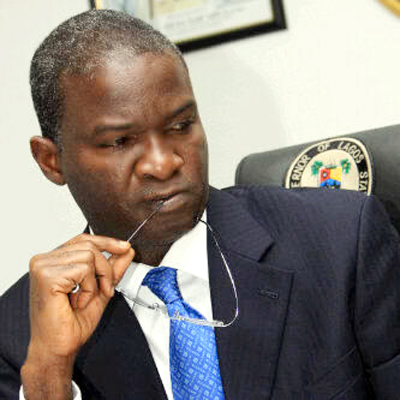Senators and service chiefs met yesterday in Abuja for six hours to discuss the threat of the Boko Haram Islamist sect to the city of Lagos, the nation’s commercial nerve centre.
The meeting which was held in the Senate chambers behind closed doors from 10:56pm till 5pm had Chief of Defence Staff, Admiral Sa’id Ola Ibrahim; Chief of Army Staff, Lt. General Azubuike Ihejirika; Chief of Naval Staff, Vice-Admiral Dele Ezeoba; Chief of Air Staff, Air Marshal Alex Badeh; the Director General of the Directorate of State Services, Ita Ekpeyong; the Inspector General of Police, Mohammed Abubakar, represented by Deputy Inspector General (Administration), Suleiman Fakai.
This correspondent learnt that though the service chiefs were billed to brief the Senate on their operations regarding the fight against terrorism and curtailing insecurity in the country, there was reluctance on the part of the service chiefs to divulge operational details.
At a point during the meeting, the Senators were said to have queried the representation sent by the IG, wondering while Fakai who is in charge of administration should represent the police chief at a meeting to discuss operational strategies as they felt that the DIG in charge of operations could have made better input to the discussions since the IG was said to be on another official assignment.
In his defence, Fakai explained that he had to stand in for his boss as the DIG, Operations was briefing the President on the same issue being discussed at the Senate at about the same time.
A senator, who refused to be disclosed, said, “You know these are security men and they are fully aware that they are speaking to politicians. They chose their words carefully so that they will not play into the hands of people they are dealing with.
“You are aware that one or two of our colleagues in the Senate are facing investigation or trial for links with the Boko Haram group.
“After their briefing, we asked general questions about the seriousness of the threat we are facing and whether their strategy would get the job done.
“One of us asked what their position was on calls for dialogue with the sect and the unanimous answer they gave was that they were in support of whatever decision the President takes.”
When asked what specifically was discussed about Lagos, the senator said, “You know I can’t give you details. Everyone was concerned because attacking our commercial capital will have dire consequences. We all agreed that we must do everything to nip it in the bud. On the whole, all options are open. That is all I can tell you.”
Another source said that though it appeared there was a sense of helplessness on the issue, the security agencies were in consensus over what to divulge, which indicated a sense of inter-agency collaboration unlike before.
A source within the military said that the service chiefs were summoned by the Senate to brief the senators on the state of security in the country.
The senators were said to have demanded explanations from the Chief of Defence Staff and the chiefs of the three services of the nation’s Armed Forces on the escalating cases of murder and kidnapping in the country.
They were said to have observed that stories of killings have become a daily occurrence in the society and this should be stopped.
At the end of the meeting, the President of the Senate said, “At plenary, the Senate was briefed by the Service Chiefs and afterwards they took questions on the same subject matter.”
The Chairman of the Senate Committee on Information and Media, Eyinnnaya Abaribe, addressed a press briefing after the closed-door session, where he told reporters that the Senate was satisfied with the briefing it received.
He said, “The Senate devoted the entire plenary to an interaction with the service chiefs and heads of security agencies in Nigeria with a view to finding out problems and work with the different security agencies in Nigeria.
“We are satisfied with the level of interaction and the efforts aimed at making Nigeria a safe place, we are calling on Nigerians to cooperate with our security agencies to resolve these issues. “
Abaribe added, “All options on how to operate and fight terrorism for which we also signed several protocols I ‘m sure that all these kind of interaction that our security agencies are having with their counterparts in terms of security means that the fight against global terrorism is a collective one.”

